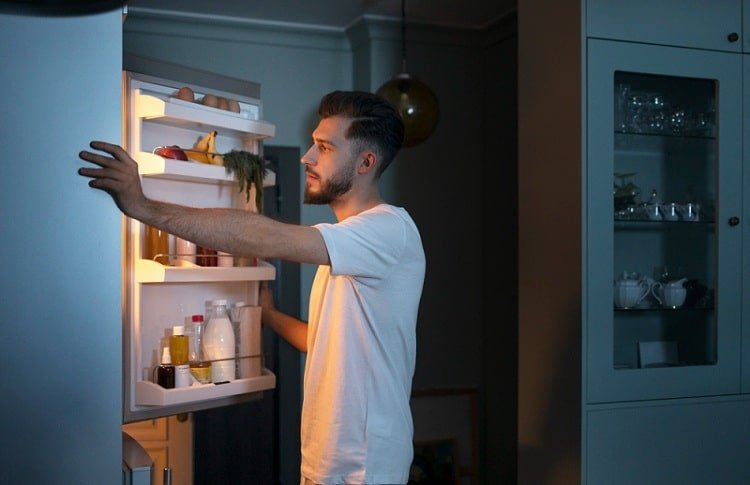Troubleshooting your refrigerator made easy! Find effective solutions to common issues and get your appliance running smoothly again.
Improper cleaning and maintenance can develop severe technical problems in your refrigerator. Spending a day with a faulty refrigerator would be troublesome. Fruits and vegetables might lose freshness and food items might be spoiled when the fridge stops working.
Hence, try to repair this home appliance at the earliest possible to avoid these problems. Like other electronic devices, your refrigerator can generate issues over time due to consistent usage. Some of these repair problems can be fixed with D-I-Y approaches, but some require professional intervention.
For instance, your smart refrigerator can sometimes take hours to cool. It occurs generally because of overloading the appliance with too many items.
Removing unwanted groceries or frozen items will resolve the issue. You can also fix it by changing the refrigerator temperature using smart controls. However, this is not the scenario for all refrigerator problems. Critical issues like insufficient cooling or broken interior parts need expert assistance.
Thus, contacting a technician will be a wise decision in such instances.
7 Major Refrigerator Problems & Solutions
Dealing with refrigerator problems? We’ve got you covered! Discover expert tips and quick fixes to keep your fridge in top-notch condition. Here we have compiled the common refrigerator problems which you can encounter in the long run:

#1. Water Leakage Problem
Refrigerator Repair Services reported that your refrigerator’s water leakage is an alarming problem. This problem usually occurs due to a clogged defrost drain. This drain prevents the device from further freezing. You will see water dripping from the fridge’s drain into the pan.
Sometimes, food particles or debris can accumulate inside the defrost drain, leading to water leakage problems. Therefore, cleaning this refrigerator drain can help you to resolve this issue. Take a bucket and fill it with lukewarm water. Pour the water down the defrost drain to remove the clog.
Is there Any Other Way to Clean a Clogged Defrost Drain?
Mix 1 tablespoon of baking soda with 2 cups of water in a bowl. Squeeze the solution into the drain with a bulb baster. You will hear water running down into the defrost drain when it is unclogged.
What are the Common Causes of a Refrigerator Water Leakage?
The clogged defrost drain is not the only culprit behind this problem, a frozen water supply line can be responsible for it. A clogged supply line can also lead to water leakage problems. However, there is no need to contact an expert to fix it.
Open your refrigerator’s manual and check the water supply line’s location. Unplug the appliance’s power cord from the wall outlet. Ensure to turn off the shut-off valve; otherwise, it could cause electrical hazards.
Now check if there is any structural damage in the water supply line. Opt for an immediate replacement if it has any wear and tear. If you notice a clog, take 2 tablespoons of distilled vinegar into a cup and pour it into the supply line. Connect the power cord to the wall outlet and water won’t further drip from your fridge.
#2. Refrigerator Won’t Stop
Electronic appliances like refrigerators only run when you turn them on. However, these devices can sometimes run for a prolonged time even after turning them off. You might also hear a loud noise from the appliance and your utility bill will increase significantly.
Why does this refrigerator issue occur? The most common cause of this technical problem is excess dust and debris buildup in the condenser coils. Turn off the device and look for dust accumulation around these fridge units.
Condenser coils’ location might vary from one refrigerator to another. Hence, you must first check whether your fridge’s condenser coils are. It might be either under the appliance behind the base grille or on its top. Unclog the condenser coil to prevent your refrigerator from running constantly.
How Can You Clean Your Refrigerator’s Condenser Coils?
Use a narrow vacuum attachment to dislodge the loose dust and debris from the condenser coils. Ensure to clean all the nooks and crannies of this unit with this tool.
Alternatively, you can remove the stubborn dust particles with a long-handled brush. Plug your refrigerator’s cable into the power outlet, unplug it after 2-3 minutes, and check if the device is running continuously.
#3. Frost Accumulation in the Freezer
Do you often see ice buildup in your refrigerator’s freezer? It is high time to take immediate action. Frost accumulation in this unit indicates something is wrong with the seal. A faulty freezer seal fails to prevent the outside air from coming inside the device, increasing the humidity.
Consider replacing the freezer’s seal as soon as possible to fix this problem. Ensure to get a high-quality seal for your refrigerator. Check the humidity and temperature level using specialised tools. The freezer won’t further contain ice buildup after replacing the seal.
How to Prevent Ice Buildup in Your Refrigerator’s Freezer?
Ice will form inside the freezer if you leave the refrigerator’s door open for a prolonged time. Recent studies show that a refrigerator builds up ice in the freezer when the door is unlocked for 2-3 hours. Hence, ensure to close your refrigerator door properly so that humid air won’t come inside.
Here are the solutions you must try to prevent the freezer’s ice buildup:
- Tighten your refrigerator’s door hinges.
- Clean your fridge seals with a damp cleaning cloth.
- Clean the vents after every 6 months for proper air circulation.
#4. Overheating
Refrigerators are designed to keep foods, vegetables, and other items cold. However, if it is generating excessive heat, it can be alarming. Opt for an immediate device inspection if you encounter this problem.
A refrigerator overheats when the condenser coil stops working. Thus, cleaning this refrigerator unit can help you solve the issue. Sometimes, a faulty condenser fan motor can make this appliance warm. We recommend checking the condenser fan motor as well.
Why Does a Refrigerator Overheat & How to Prevent it?
Your refrigerator will become warm if you overfill it with food. Look for expired or old items from the device and toss them into the bin. Besides, there is a high chance that the evaporator fan is damaged and requires immediate replacement.
Here are the other reasons for this refrigerator issue:
- A damaged electrical control board
- Blocked vents
- Frozen evaporator coils
#5. The water Dispenser isn’t Working
You will find a built-in water dispenser in all the latest refrigerators. Their main function is to keep the water cold and fresh. However, this internal unit can stop working when supply lines become clogged or frozen.
Some refrigerator’s water lines run through the freezer and setting the temperature too low will freeze it. As a result, water will stop following from the fridge dispenser. So, you must adjust the appliance’s temperature to resolve the problem.
Additionally, you must unclog your fridge’s supply lines. Does your refrigerator have kinked supply lines? It’s high time for a supply line replacement. Repairing or replacing a fridge’s supply lines requires technical knowledge. So, this supply line replacement work is best left to experts.
Why Does a Refrigerator’s Water Dispenser Stop Working?
The water dispenser might become unresponsive due to several reasons. A frozen water tub can cause this problem in your appliance. Disconnect this tub from the freezer and defrost it to resolve the issue.
Implement these solutions to fix your fridge’s water dispenser issue:
- Repair or replace the defective water inlet valve.
- Install a new water line to improve the water flow.
- Check and fix the water dispenser connection.
#6. The refrigerator is Making Unusual Noises
The refrigerator does not generate any sound while performing its cooling operations. However, a noisy refrigerator indicates something is wrong with its fans. Chances are high that both the condenser and evaporator fan are damaged.
What do these two refrigerator fans do? A condenser fan cools your fridge’s condenser coils and the evaporator fan extracts the warm air from the evaporator coils. These two fans operate simultaneously when the device is on. Hence, a problem with any of these fans can make your appliance noisy.
How to Fix a Noisy Refrigerator?
Inspect your fridge’s evaporator and condenser fan thoroughly. Consider replacing these units if you detect any sign of damage. Additionally, you must check the refrigerator motors. Repair the evaporator fan and condenser fan motor if they appear to be broken.
Try these solutions to repair a noisy refrigerator:
- Fix the loose drain pan
- Check and replace the defrost timer
- Change the refrigerator compressor
#7. High Utility Bill
You must be surprised to know that an average-size fridge consumes 300-800 watts of energy daily. It uses 20% more electricity when any of its parts are damaged. Thus, you must inspect the device’s interior and exterior components and look for signs of wear and tear.
Replace the faulty fridge parts to decrease energy consumption. You might have to invest in a new refrigerator if you use the existing one with damaged units. So, watch out for the repair signs and try to fix them on time to reduce energy consumption.
How to Reduce Your Fridge’s Excess Energy Consumption?
Use a Kill Watt energy usage meter to measure the appliance’s energy consumption. If the device is consuming more energy than expected, upgrade the outdated units. Install a compatible fridge unit and save money on energy bills.
Here are the other tips to reduce your device’s energy usage:
- Avoid placing your fridge close to a heat source like an oven.
- Keep the device temperature between 5° C to -18° C.
- Defrost the food before keeping it inside the fridge.
Refrigerator Problems that Must be Fixed by a Professional:
Is your fridge’s ice maker overflowing? There is a high chance that the water inlet valve is damaged. Hence, contact a professional to replace this unit in minutes.
Additionally, you will need an expert’s help to repair the faulty capacitor. Don’t try to fix the appliance’s power resources with D-I-Y methods. Book a refrigerator repair technician for immediate assistance.

